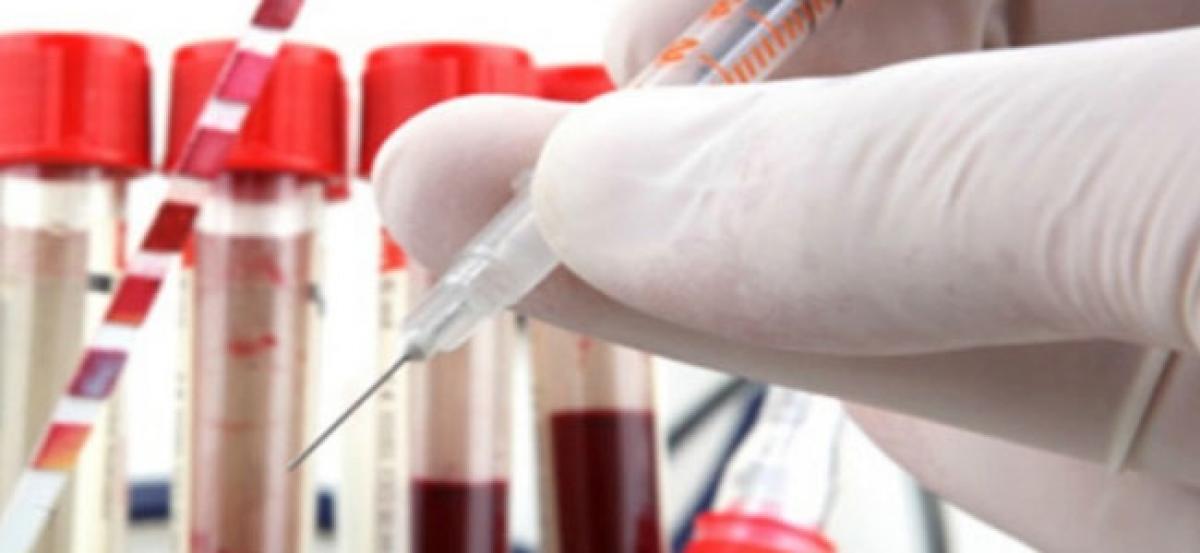Live
- A feast of music, dance and drama
- Mohan Babu denies absconding amid legal controversy
- Swift City to boost industrial growth in Bengaluru
- Allu Arjun walks out free after spending night in jail
- Congress harbours no grudge against any actor: TPCC chief
- Allu Arjun meets Upendra after release from prison, wishes for his ‘UI’ film
- Government Launches Uniform Diet Plan to Boost Student Health and Education
- Robust Security Arrangements for TSPSC Group-2 Exams in Jogulamba Gadwal
- National Lok Adalat Resolves 3387 Cases at Alampur Court
- ‘Get Set, Grow Summit 2024’ Focuses on Digital Detox for Families
Just In

A 29-year-old Indian-origin Malaysian man was executed on Friday in Singapore for drugs smuggling despite calls by the UN and rights groups to halt his capital punishment.
A 29-year-old Indian-origin Malaysian man was executed on Friday in Singapore for drugs smuggling despite calls by the UN and rights groups to halt his capital punishment.
Prabagaran Srivijayan was sentenced to death in 2014 after he was caught with 22.24 grams of diamorphine while trying to enter Singapore.
Srivijayan had his death sentence carried out at Singapore's Changi Prison Complex, said the Central Narcotics Bureau (CNB).
He was arrested in April 2012 at Woodlands Checkpoint in the main causeway to southern Peninsular Malaysia.
Two packets of the drug were recovered from the vehicle he was driving, the CNB said in a statement.
On Thursday, Srivijayan's lawyer, Choo Zheng Xi, on instructions from Srivijayan's family, asked the Singapore apex court to stay his client's death sentence on the grounds that his appeal in Malaysia was pending.
Judges of Appeal Chao Hick Tin, Andrew Phang and Tay Yong Kwang called the attempt to halt Srivijayan's execution because of proceedings in another country "an abuse of process".
"The judiciary of each country is entitled to act in accordance with its Constitution and its laws," The Channel News Asia quoted Judge Chao as saying.
"No judiciary of one country interferes in the judicial process of another country," he said.
Srivijayan had a pending appeal before the Malaysian Court of Appeal to institute proceedings against Singapore in the International Court of Justice (ICJ).
Amnesty International had raised concerns about the fairness of the trial, including the alleged failure of the authorities "to follow up leads and call on key witnesses that would corroborate his version of events".
The United Nations Human Rights (OHCHR) South East Asia Regional office had called on Singapore to halt the scheduled execution of Prabagaran, and had urged the government to immediately reinstate a moratorium on the use of the death penalty.
"Drug-related offences do not fall under the threshold of 'most serious crimes'. Furthermore, under domestic law, the death penalty is not mandatory for drug-related offences," the OHCHR said.
The Misuse of Drugs Act provides for the death penalty if the amount of diamorphine imported is more than 15 grams.
His petition for clemency was unsuccessful.
Srivijayan was accorded full due process under the law, and he was represented by legal counsel throughout the process, the CNB said.
It said that 22.24 grams of diamorphine is equivalent to about 1,853 straws, which is sufficient to feed the addiction of about 265 abusers for a week.
Both Malaysia and Singapore execute murderers and drug traffickers by hanging, a system which dates back to British colonial rule.
Singapore has consistently maintained that the death penalty is an effective deterrent to crime and has rejected calls to abolish capital punishment.

© 2024 Hyderabad Media House Limited/The Hans India. All rights reserved. Powered by hocalwire.com







